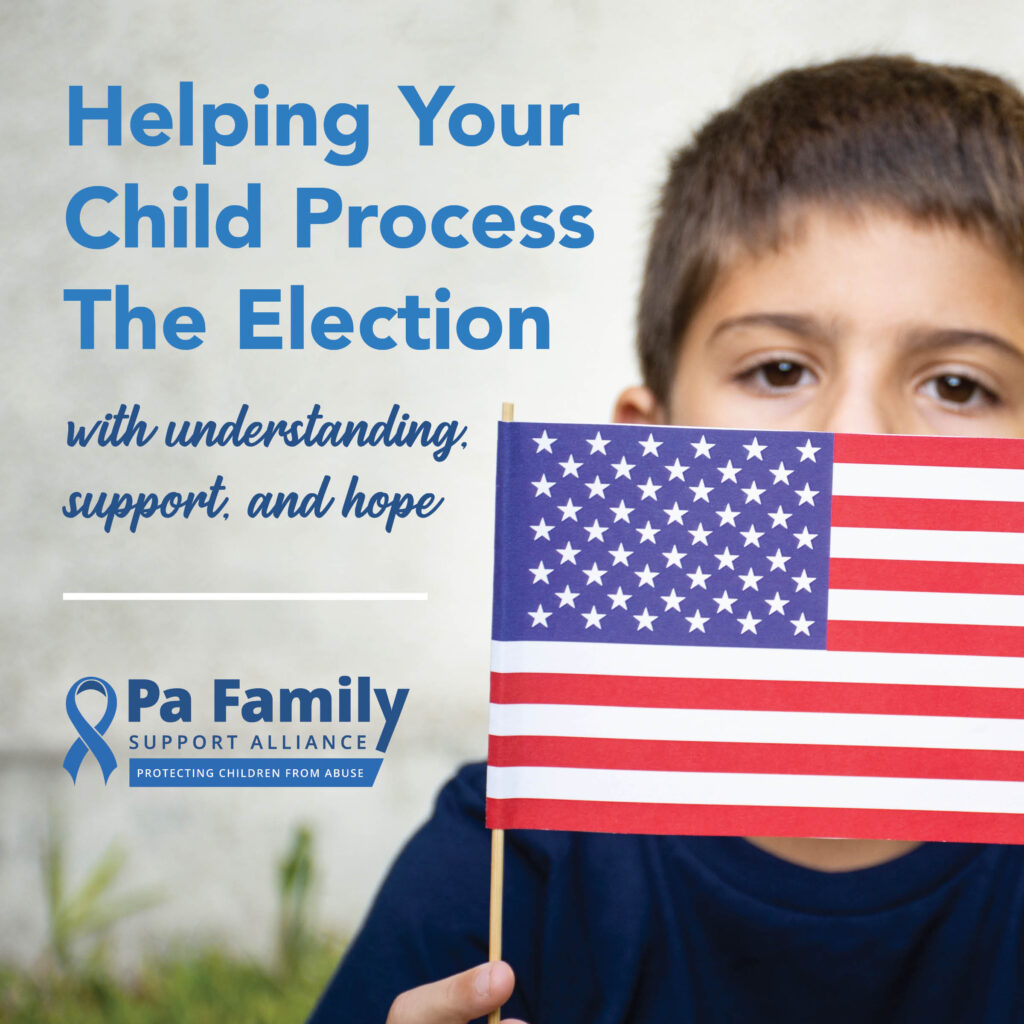Talking to Your Child About the 2024 Election: A Guide for Parents

The 2024 election is over. As Americans prepare for the next four years and sort out their feelings, we can’t forget about how our kids might be feeling about this. The election cycle slammed us with ads, messages and coverage — especially in battleground Pennsylvania. Our kids also saw this play out, as they too were overwhelmed with political content across what seemed like every social media platform.
We know that smartphones and screens have taken a toll on our kids’ mental health, which is part of the reason Pa Family Support Alliance developed the Family Digital Wellness initiative to help families raise safe and healthy kids in the digital era. And a critical component to Family Digital Wellness is to talk to your children about what they see online. And with the 2024 election played out across every inch of the Internet, it may be time to talk to your child about how they’re feeling.
Here are some tips for talking to your kids about the election results:
Acknowledge their feelings
Start by asking your child how they feel about what they’ve heard or seen regarding the election. Let them know it’s okay to feel worried, confused, or even sad. Validating their emotions helps them feel heard and supported.
Reassure them of your unconditional love and support
Remind your child that, no matter what, your love and support are unwavering. This stability can make a world of difference. Reassure them that you will always advocate for them and that there are many people in your community, state, and the country who care deeply about supporting and protecting kids like them.
Encourage questions
Invite your child to ask questions, no matter how big or small. This helps you understand their concerns and allows you to provide information that can ease their worries. Allow them to ask their questions without interruption; they may be uncomfortable to hear and tough to answer but this is part of a healthy dialogue.
Model respect and positivity
Election outcomes can lead to strong opinions, but this is a chance to teach your child about respect and resilience. Show them that it’s okay to feel disappointed or happy, and that respecting different opinions is part of a healthy democracy.
Teach resilience and hope
Share stories of resilience and positive change, highlighting how many people have worked—and continue to work—for a fairer world. Emphasize that change often takes time, but we can all play a role in making a positive impact.
Supporting your child through this time means reminding them they’re not alone. With love, honesty, and a strong sense of community, you can help them to navigate their feelings about the future in a healthy manner.
Leave a Reply
You must be logged in to post a comment.
13 Comments